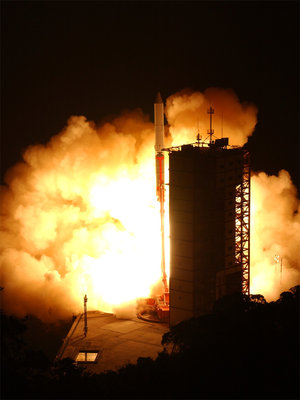

Astro-H satellite ready for launch
On 12 January 2016, the Japan Aerospace Exploration Agency (JAXA) presented their Astro-H satellite to the media at the Tanegashima Space Center, situated on a small island in the south of Japan. The satellite, developed with institutions in Japan, the US, Canada and Europe, is now ready to be mounted on an H-IIA rocket for launch on 12 February.
Astro-H is a new-generation satellite, designed to study some of the most powerful phenomena in the Universe by probing the sky in the X-ray and gamma-ray portions of the electromagnetic spectrum. Scientists will investigate extreme cosmic environments ranging from supernova explosions to supermassive black holes at the centres of distant galaxies, and the hot plasma permeating huge clusters of galaxies.
ESA partly funded various elements of the four science instruments, provided three European scientists to serve as science advisors and contributed one scientist to the team in Japan. In return for ESA’s contribution, European scientists will have access to the mission’s data.
Traditionally, Japan’s astronomy satellites receive a provisional name consisting of the word Astro followed by a letter of the latin alphabet – in this case H, because it is the eighth project in JAXA’s astronomical series. JAXA will announce the new name after launch.
This photograph was taken on 27 November 2015 at the Tsukuba Space Center, Japan.
Update: The launch of ASTRO-H has been postponed to 17 February.





